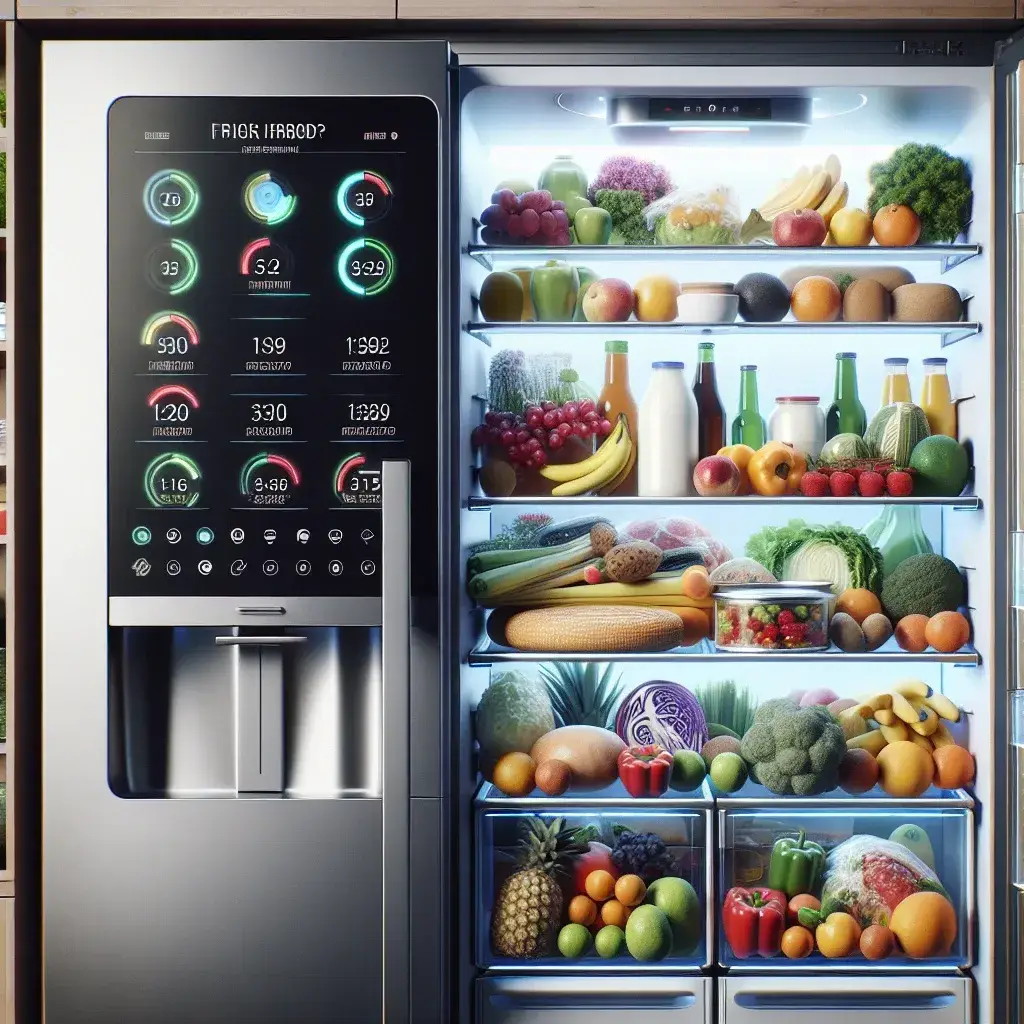The modern kitchen is evolving, and one of the most significant innovations is the introduction of smart refrigerators. These intelligent appliances are not just space savers; they play a crucial role in reducing food waste by effectively tracking expiration dates. In this article, we will explore how smart refrigerators work, their benefits, the technology behind them, and their potential impact on sustainability and food management.
Understanding Smart Refrigerators
Smart refrigerators are equipped with advanced technology that allows them to connect to the internet and communicate with other smart devices. They can monitor the items stored inside, provide real-time updates, and even send alerts when food is nearing its expiration date.
How Do Smart Refrigerators Work?
The functionality of smart refrigerators revolves around several key features:
- Inventory Management: Smart refrigerators often come with cameras or sensors that can detect the items placed inside. This inventory system helps track what you have and how long it has been in the fridge.
- Expiration Date Tracking: Many smart refrigerators can keep track of the expiration dates of various food items. They may allow users to input expiration dates manually or automatically detect them based on the product’s barcode.
- Mobile Connectivity: Through a dedicated mobile app, users can access their refrigerator’s inventory remotely. They can receive notifications about items that need to be consumed soon and even create shopping lists based on what is left.
- Food Recipes and Suggestions: Some models can suggest recipes based on the ingredients you have on hand, encouraging users to utilize what they already possess rather than purchasing new items.
The Impact of Smart Refrigerators on Food Waste
Food waste is a significant global issue, with approximately one-third of all food produced for human consumption lost or wasted. Smart refrigerators can play a vital role in addressing this problem:
Reducing Food Waste
By tracking expiration dates, smart refrigerators help households minimize the amount of food that goes uneaten. With timely notifications and reminders, users are less likely to forget about items that are about to spoil. This proactive approach can lead to a noticeable reduction in food waste.
Statistics on Food Waste
According to the World Wildlife Fund, nearly 1.3 billion tons of food is wasted globally each year. In the United States alone, food waste accounts for approximately 30-40% of the food supply. By leveraging technology like smart refrigerators, we can combat this alarming trend.
Encouraging Thoughtful Consumption
Smart refrigerators can also promote more mindful consumption habits. By providing users with a clear inventory of their food items and their expiration dates, they encourage individuals to plan meals and use ingredients effectively, reducing impulsive purchases that often lead to waste.
The Technology Behind Smart Refrigerators
The technology integrated into smart refrigerators is what allows them to function so effectively in tracking food and reducing waste. Here are some critical components:
- IoT Connectivity: The Internet of Things (IoT) connects smart refrigerators to the internet, enabling them to communicate with users and other devices.
- Sensors and Cameras: Advanced sensors or built-in cameras can detect food items and monitor their conditions, sending real-time updates to users.
- Mobile Applications: Many smart refrigerators come with companion apps that allow users to manage their food inventory, receive expiration alerts, and access recipes.
Pros and Cons of Smart Refrigerators
Pros
- Reduction in Food Waste: As discussed, tracking expiration dates can significantly minimize food waste.
- Convenience: Users can access their inventory from anywhere, helping them plan meals and grocery shopping.
- Healthier Choices: Alerts about expiring food items can prompt healthier meal choices and cooking at home.
Cons
- Cost: Smart refrigerators can be more expensive than traditional models, potentially making them less accessible.
- Complexity: For some users, the technology may be overwhelming or complicated to set up.
- Privacy Concerns: As with any internet-connected device, there are concerns about data privacy and security.
Future Predictions for Smart Refrigerators
The future of smart refrigerators looks promising. As technology advances, we can expect even more innovative features aimed at reducing food waste and promoting sustainability:
Integration with AI Technology
Artificial Intelligence (AI) may enhance smart refrigerators by providing personalized meal suggestions or automatically adjusting temperature settings based on the items stored inside.
Collaboration with Local Food Suppliers
In the future, smart refrigerators might collaborate with local grocery stores to suggest fresh items or alert users about discounts on items that complement what is already in their inventory.
Environmental Sustainability Initiatives
Manufacturers may focus on creating eco-friendly smart refrigerators that consume less energy or utilize sustainable materials in their construction, aligning with global efforts to combat climate change.
Real-Life Examples of Smart Refrigerators
Several brands have made significant strides in the smart refrigerator market:
- Samsung Family Hub: This model features a built-in touchscreen that allows users to manage their grocery lists, view expiration dates, and even play music!
- LG InstaView: With its knock-on feature, users can see inside the fridge without opening the door, reducing energy consumption while being aware of their food inventory.
- Whirlpool Smart Refrigerator: Offers a mobile app that helps users track expiration dates and plan meals effectively.
Cultural Relevance of Smart Refrigerators
As society increasingly embraces technology, smart refrigerators are becoming symbolic of the modern lifestyle. They reflect a growing awareness of food waste and sustainability, encouraging individuals to take action within their homes. Moreover, they represent a shift towards healthier eating habits, reminding us to use our resources wisely.
Conclusion
Smart refrigerators are more than just appliances; they are innovative tools that can drastically reduce food waste by effectively tracking expiration dates and promoting thoughtful consumption. As technology continues to evolve, these refrigerators will play an essential role in creating a more sustainable future. By investing in smart refrigerators, consumers not only enhance their kitchen experience but also contribute to a global movement aimed at minimizing food waste and fostering environmental responsibility.

Leave a Reply